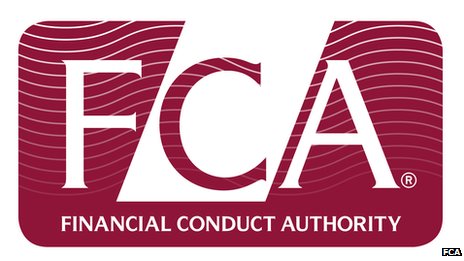|
This week blog is another letter - this time a letter to a member from the FCA. I expect a lot of members will have received similar letters but James Glanville has agreed we post this one for everyone to see how difficult it is to get around this sort of obfuscation! Dear Mr Glanville Thank you for your email of 5 November 2014, which we have considered as a complaint against the FCA under the Complaints Scheme (the Scheme). Our understanding of your complaint is that you are dissatisfied with the FCA’s failure to take any action to intervene in the IRHPs review. In particular, you are concerned that a bank involved in the review process can find that it has mis-sold an IRHP to a client and as part of the redress offer another IRHP in its place. You said that the FCA seems to be idly standing by allowing this miscarriage to happen. Our response Unfortunately paragraph 3.5 of the Scheme, provides that we will not investigate complaints which amount to no more than dissatisfaction with the FCA's general policies or with the exercise of, or failure to exercise, discretion where no unreasonable, unprofessional or other misconduct is alleged. You can view the Scheme online at www.fca.org.uk/your- fca/complaints-scheme.Your complaint is that the IRHP review process allows the banks to offer a new IRHP as part of the redress scheme. It is our view that this is essentially a complaint about FCA policy and it is therefore not appropriately considered under the Scheme. Although we have not investigated your complaint we have sought comments from the FCA Supervision team responsible for the review (Supervision). In relation to the banks’ reviews of their sales of interest rate hedging products (IRHPs), you have raised concerns about the conduct of the FCA. Your main concern is that one of the potential outcomes of the review is for customers to be offered redress based on replacing their existing IRHP with an alternative product. The FCA’s principles of fair and reasonable redress require a bespoke assessment of all relevant evidence to determine what the customer would likely have done had the sales process been conducted compliantly. This is the same approach used by the Financial Ombudsman Service and gives rise to three possible basic redress outcomes for customers: 1.Some customers would never have purchased a hedging product and will receive a full refund of all payments on their IRHP; 2.Some customers would still have sought or been required to enter into a product that provided protection against interest rate movements, but would have chosen an alternative product. These customers will receive redress based on the difference between the payments they would have made on the alternative product, compared with the payments they did make. To ensure that alternative products are offered in the right circumstances, banks need to show that this is what the customer would have purchased had the regulatory requirements been complied with, and support their reasoning with evidence and customer testimony. The determination is verified by an independent reviewer; and 3.Some customers would have chosen the same product they originally purchased whilst some customers may not have suffered any loss. These customers will receive no redress. The FCA shares your objective of ensuring that customers who were mis-sold an IRHP receive a fair and reasonable redress offer as quickly as possible. However, your complaint highlights that you have a differing view as to what represents fair and reasonable redress. The FCA does not share your view that a swap or collar is never a suitable product for a small business. For example, whilst each case is different and involves a bespoke assessment of the relevant evidence, we observe that there are a relatively large number of property investment businesses in the review for whom entering into a swap appears to have met their objectives. These businesses typically were highly leveraged and had a relatively stable income stream (i.e. rental income in relation to long term commercial leases) from which they expected to cover their interest payments. However their debt service cover was relatively low. An IRHP fixed their borrowing costs, giving them certainty over their future profitability and their ability to meet interest payments. You have suggested that the IRHP review lacks an appeals process. Supervision have advised us that in fact it has an in-built appeals mechanism. For customers to make an informed decision as to whether or not to accept a redress offer, the banks must clearly explain how they have reached their judgments, including the key facts or judgements they relied on. In addition to the letter, customers will also be offered a face to face meeting, during which they can ask questions and the banks can expand on their explanations. Customers may be able to challenge the outcome if: -After hearing the bank’s explanations, the customer considers that the bank has clearly relied on erroneous information, such that the bank’s rationale is based on faulty evidence; or -The customer believes that the bank has clearly missed an important piece of information, such that the bank’s explanation is based on incomplete evidence. The bank and independent reviewer will carefully consider whether the errors or omissions raised by customers have any bearing on their judgments and on the overall outcome. An independent reviewer attends the meetings as a silent observer to ensure that they are carried out fairly. Customer feedback in relation to the redress meetings has been positive. It is important to understand that whilst the FCA expects banks to explain their decisions, the FCA does not expect them to present their evidence and debate their judgments in the same way that perhaps you might expect in a courtroom – the review does not replicate litigation. The FCA has consciously designed the IRHP review process so that the banks needn’t spend time and money building and arguing cases for themselves. The reason for designing it in this way is because the FCA sought to maximise the amount of necessary redress paid out with minimal delay. However, the FCA has also built in a system in which expert independent reviewers will look at every case. All the relevant evidence will be thoroughly examined and challenged on behalf of the customer and the independent reviewer will make their own determination as to whether the outcome is fair and reasonable. It is worth reiterating that if customers believe they have exhausted discussions with the bank and remain dissatisfied, then they may be able to refer their case to the Financial Ombudsman Service. Private individuals can bring complaints to the Ombudsman Service, as can businesses that are “micro enterprises” (an EU term covering smaller businesses) as long as they have an annual turnover of less than two million euros, or approximately 1.59 million pounds and fewer than ten employees. A further option that remains open to customers is to continue to pursue their claim through the courts. Customers who are contemplating taking this route should consider seeking legal advice. Finally, you believe that the review of interest rate hedging products (IRHPs) is a secret deal between the FCA and the banks. There is no secret deal. The FCA consistently provided clear information about the IRHP review on the FCA website, in publications, and in discussions with customers, campaign groups, MPs and the media. In addition, the FCA has recently started publishing transparent information about how the banks’ reviews are progressing. Given the wealth of publically available information to help customers understand the IRHP review, it is difficult to support your view that this is a secretive deal. Quite separately, unfortunately we have been unable to agree to requests made under the Freedom of Information Act to release the original agreements between the FCA and the participating banks. The FCA is prohibited from releasing these agreements by confidentiality restrictions under the Financial Services and Markets Act (FSMA) 2000 and to do so would be a criminal offence. The Information Commissioner and Information Tribunal have agreed with the FCA on this matter. If you are dissatisfied with our decision not to investigate your complaint under the Scheme, you may refer your complaint to the Complaints Commissioner. A referral to the Complaints Commissioner should usually be made within three months of the date of our final response, although a referral outside the three months' time limit may, where there are adequate reasons for the delay, still be considered by the Complaints Commissioner. If you decide to contact him, please write to: Office of the Complaints Commissioner 48-54 Moorgate London EC2R 6EJ Telephone: 020 7562 5530 Email: [email protected] Yours sincerely Carla Wevill Complaints Investigator FCA Complaints Team Blog Author James Glanville
Founder Member
0 Comments
Leave a Reply. |
Archives
November 2021
|



 RSS Feed
RSS Feed